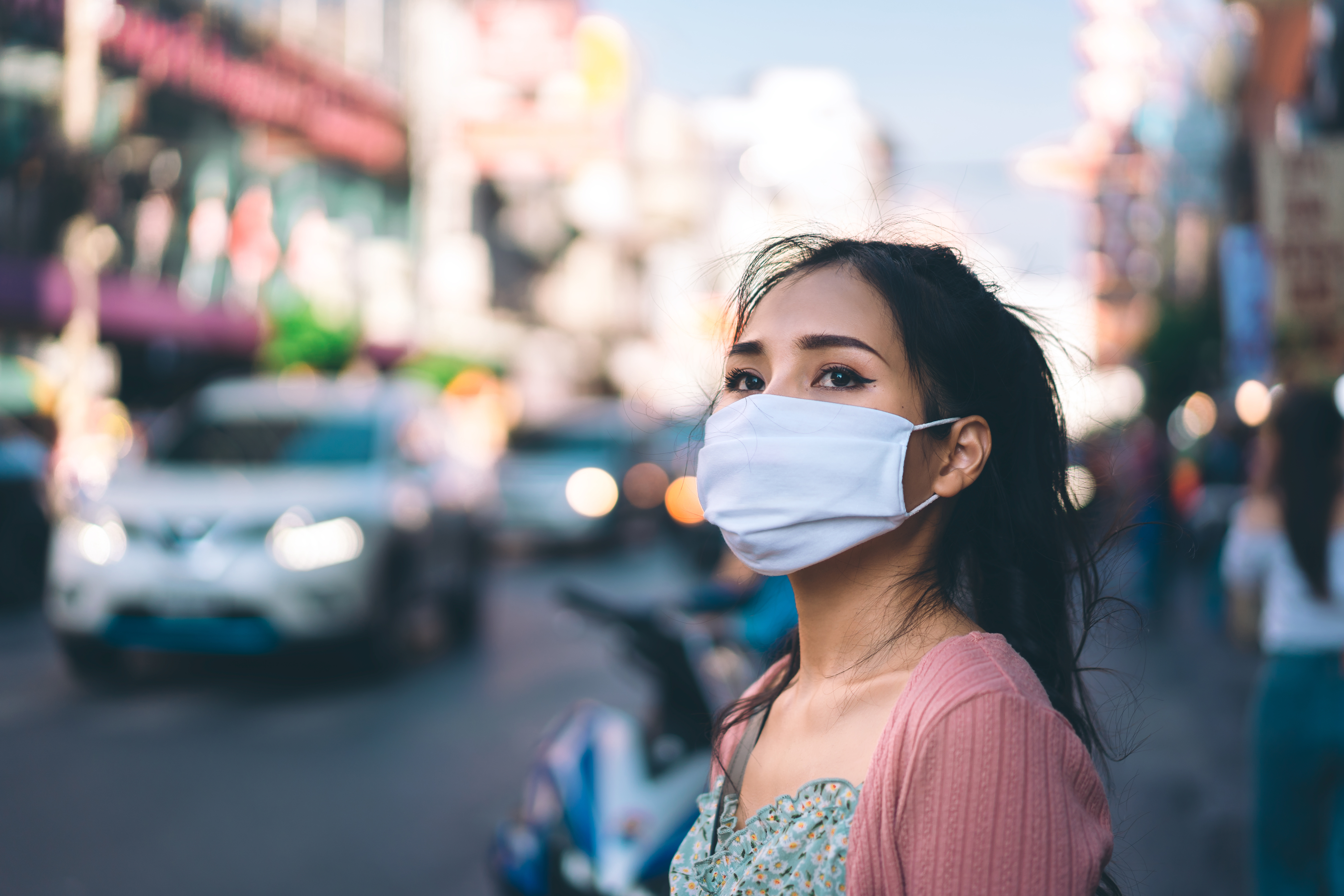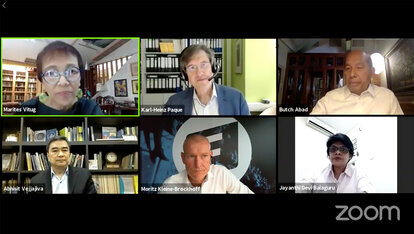Down but not out

Don’t count out the liberal democrats at the time of the pandemic and its aftermath, when economies are expected to take a downturn. They face serious challenges—but armed with lessons from the past and the coronavirus crisis—they can push back the seeming slide to authoritarian rule.
Three leading figures in the global liberal democratic movement—two from the Council for Asian Liberals and Democrats (CALD) and one from the Liberal International—gave this prognosis in an online forum on June 30 entitled “Covid-19 and the Future of Democracy in Asia” organized by CALD and the Friedrich Naumann Foundation for Freedom (FNF).
Florencio “Butch” Abad, the Philippines’ former budget secretary and founding member of CALD, Abhisit Vejjajiva, Thailand’s former prime minister and former chairperson of CALD, and Karl-Heinz Paqué, vice-president of the Liberal International and chairman of the FNF, painted in broad brush strokes the state of democracy, as hit by the coronavirus, and suggested ways to move forward.
Covid-19 appears to be accelerating the decline of democracy, as some governments have taken draconian steps to contain the virus. Evidence shows, however, that democracies are successfully overcoming the crisis without having to resort to heavy-handed measures.
In Southeast Asia, where majority of the countries are “enduring authoritarian regimes,” Abad said that the few democracies remain fragile, a weakness the pandemic may prey on. Several of the region’s autocratic leaders, for their part, have “amassed emergency powers” to respond to the crisis but abused these to curtail civil liberties.
The impression that authoritarian regimes have performed better in beating the virus stems from the experiences of Vietnam and Singapore which have acted early and decisively to slow down transmission. In contrast, the two democracies, the Philippines and Indonesia, are lagging behind in the region in containing the virus.
Outside Southeast Asia, democracies like Taiwan, South Korea, Australia and New Zealand have been heralded as success stories in the fight against Covid-19.
Abad, Vejjajiva and Paqué were one in the conclusion that success in battling the virus was “not an issue of democracy versus authoritarianism” but key factors such as trust of citizens on their government, leaders who respond decisively, and effective management and good governance. “This has been shown in the crisis by [countries] fundamentally respecting human and civic rights,” Paqué said.

Vaccine and multilateralism
One disappointment in the way countries have been dealing with the crisis, Abhisit pointed out, is the absence of multilateral cooperation. “Imagine, if we had a coordinated effort in terms of taking the right measures and coordinating between countries and regions, we might very well be on top of the infection,” Thailand’s former prime minister said.
The Association of Southeast Asian Countries could play an important role. “Once the vaccines and treatments become possible, it would be good to have joint regional agreement to make sure that there is access to the vaccines and treatment in a fair way. If left to individual countries, my fear is that this will lead to lack of cooperation and growing nationalism,” Abhisit explained.
Paqué shared the same perspective and called for a “return to constructive multilateralism.” He stressed: “We desperately need multilateralism for scientific purposes. To get the vaccine for Covid-19, we have to work together globally.”
Big government
Some have expressed fear about the expansion of state power in the light of the pandemic. As Jayanthi Balaguru, chair of the CALD Women’s Caucus, said in her opening remarks, “Big government is in fashion again.”
However, both Abhisit and Paqué cautioned that the increased role of the state in itself is not necessarily a bad thing. “We should be concerned with how the state actually uses that power and what kind of role it plays,” Abhisit said. “There can’t be denying that we need a stronger social protection and welfare system to deal with the current economic predicament and to deal with the structural problem of inequality.”
Liberals tend to be skeptical about big government, Paqué added, but “it depends on how the government is organized, whether it creates trust that is necessary in this type of crisis situation.”
Let’s stick to our principles. The priority of individual and human rights stands

What can liberal democrats do?
The question of the moment was: What can liberal democrats do as Covid-19 rages and threatens democracy?
Broadly, Paqué answered it this way: “Let’s stick to our principles. The priority of individual and human rights stands.”Abad spelled out specific actions that need to be taken:
- Heighten awareness, vigilance and readiness to push back against attempts by autocrats to exploit the crisis.
- Pursue innovation and enterprise that highlight advantages of democratic norms and processes.
- Persist in addressing the deeper historical and structural roots of inequality and political exclusion that drive the desperate and the left-behind to embrace extreme options.
Abhisit, for his part, called on liberal democrats to “make sure that democratic governments respond to the economic and social needs that follow from this pandemic” and to “be clear about what rules should apply as far as technology is concerned, both with data and dealing with fake news.”
He then urged leaders to “foster multilateral cooperation so that countries do not slip into protectionism and nationalism.” Similarly, Paqué posed a challenge to liberal democrats to take on the “breakdown of multilateralism.” As he said, “Who else, if not us, liberal democrats, are well suited for this task.”
This is also not a time to be discouraged, Paqué continued, as he urged his colleagues to be pragmatic rather than dogmatic in approaching realities in politics.
The pandemic, an unprecedented crisis, may yet present an opportunity: It could lead to a reimagination of governance, a new thinking in navigating politics.
Marites Dañguilan Vitug is the editor-at-large at Rappler. She's a well-known Filipino investigative journalist and author.